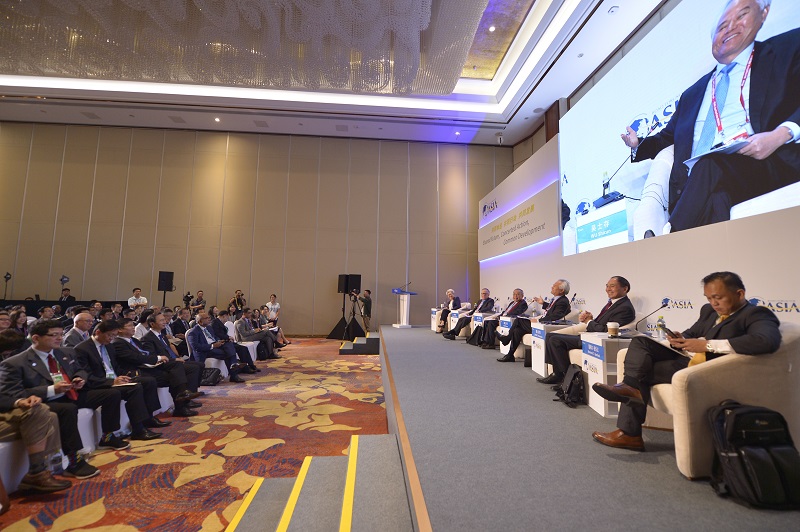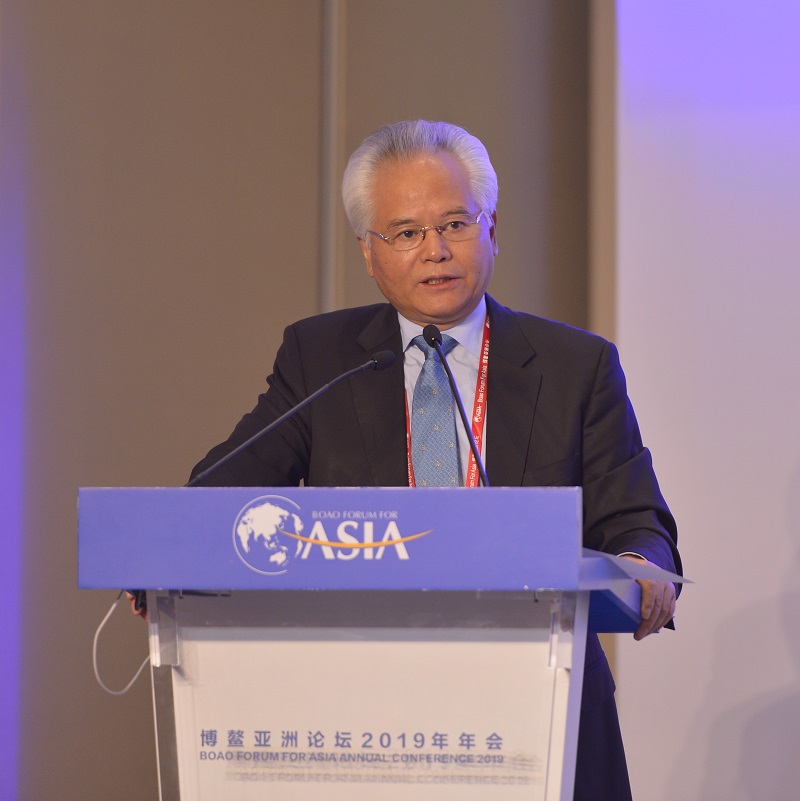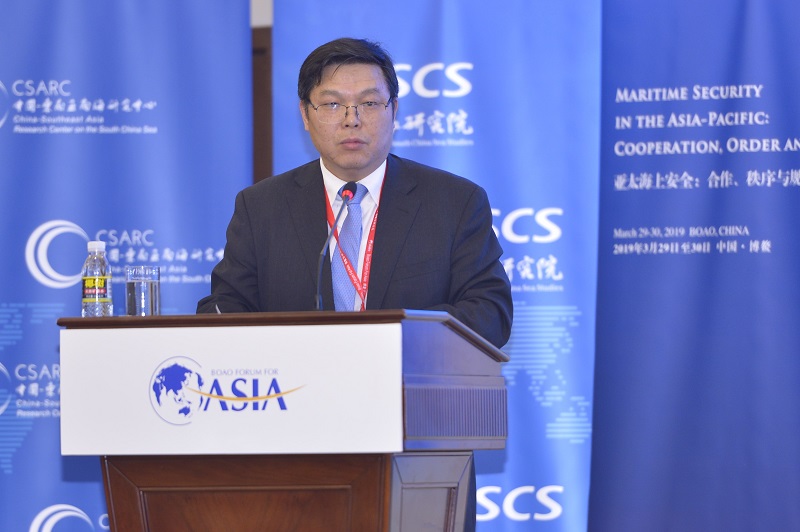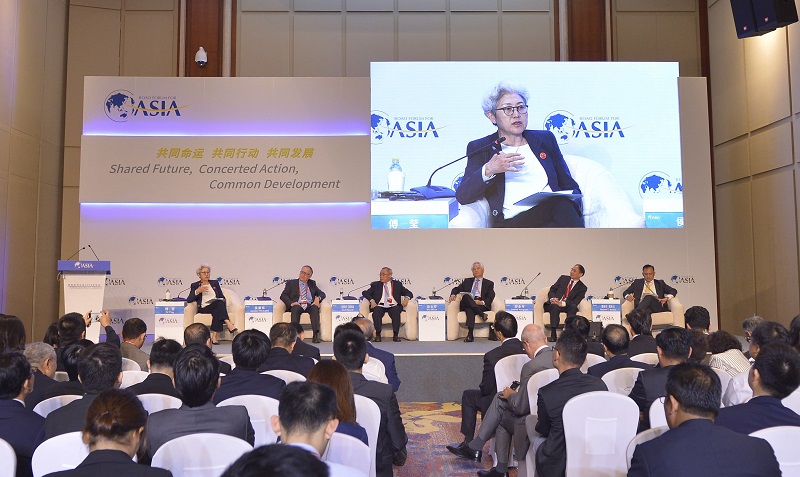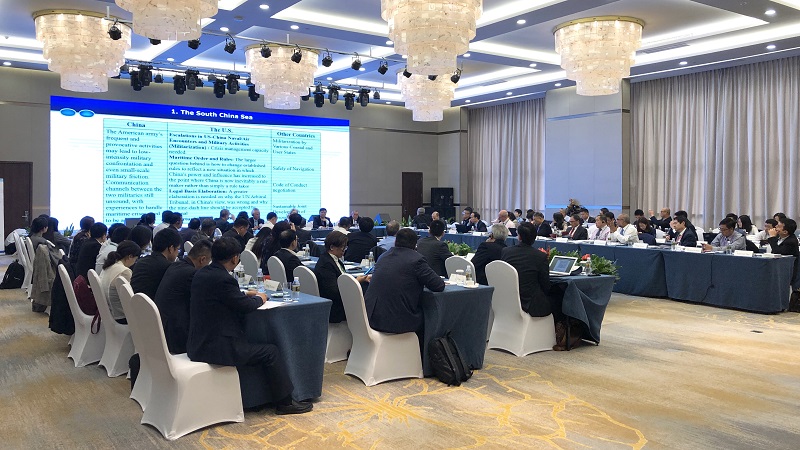
NISCSS held the 6th SCS Sub-forum of BFA Annual Conference 2019
2019-04-02 15:26:59 source:NISCSS
On 29-30 March 2019, the 6th South China Sea Sub-forum of Boao Forum for Asia Annual Conference 2019 was held in Boao, Hainan. The forum was co-organized by the National Institute for South China Sea Studies (NISCSS) and Center for International Strategy and Security of Tsinghua University (CIIS-Tsinghua), and supported by China-Southeast Asia Research Center on the South China Sea (CSARC) and the Boao Forum for Asia (BFA) Secretariat. It brought together nearly one hundred eminent scholars and practitioners from more than forty think tanks, research institutes and business entities of both littoral countries of the South China Sea and extra-regional nations.
The forum consists of an open-door session and a close-door session. The open-door session was chaired by Ms. Fu Ying, Chairwoman of CIIS-Tsinghua. Panel speakers include Dr. Wu Shicun, president of NISCSS; Jusuf Wanandi, co-founder and senior fellow of the Centre for Strategic and International Studies, Indonesia; Zheng Yongnian, director of East Asian Institute at National University of Singapore; Rommel C. Banlaoi, president of the Philippine Association for Chinese Studies; and Golden Holden, director of the China Institute at the University of Alberta. Mr. Yi Xianliang, Director-General of the Department of Boundary and Ocean Affairs of Chinese Ministry of Foreign Affairs delivered a keynote speech at the opening ceremony of the close-door session.
Ms. Fu Ying pointed out in her speech that America’s geopolitical interpretation of the South China Sea issue, which is in essence disputes over territorial and maritime claims, has taking its toll by introducing power competition and struggle over the regional order as principle factors complicating the regional situation. Mr. Yi Xianliang emphasized in his remarks that regional security of the South China Sea should be based on order and rules, rather than power and might. China and ASEAN countries have been seeking for ways formulate rules for the South China Sea since 1990s, and the Declaration on the Conduct of Parties (DOC) in the South China Sea signed in 2002 represents a success in such efforts. The negotiation of South China Sea Code of Conduct (COC) will not only step up the joint effort of regional countries in providing institutional guarantee for peace and stability, but also develop a maritime governance approach with Asian characteristics. Mr. Wanandi expressed the belief in the COC’s role of relieving South China Sea littoral countries from the pressure of great power competition, and that the consummation of COC would improve China’s image.
Banlaoi believes that the Asia-Pacific region is in need of a new security structure which is transparent, inclusive and based on rules. Houlden, though, thought that China and ASEAN should make better use of existing bilateral and multilateral mechanisms, so as to further promote the cooperation on marine science and marine ecological protection. Zheng Yongnian concluded that the South China Sea dynamics feature both cooperation and competition. Regional players should resist hegemonic influence of the United States and avoid escalation of regional conflict into military confrontation. At the same time, they can make good use of the COC negotiations, fishery agreements, and marine resources protection mechanisms to collectively and effectively manage maritime disputes.
President Wu Shicun made four specific suggestions in terms of maritime cooperation mechanism building between China and ASEAN. Firstly, a fishery cooperation mechanism should be established among the SCS littoral states on the basis of successful exploration and practice of regional and bilateral cooperation. Secondly, the level of maritime law enforcement cooperation should be elevated and established bilateral mechanisms could be expanded to multilateral ones. Thirdly, institutionalized cooperation in ocean governance among think tanks, education institutions, media and NGOs from the SCS littoral states are expected to be strengthened; and fourthly, the construction of the “Economic Cooperation Circle in the Greater South China Sea Region” should make good use of the momentum brought by a varity of new initiatives in China ranging from the Guangdong-Hong Kong-Macao Great Bay Area and the Hainan Free Trade Zone (Port), to “Southern China Sea Cruise Tourism” and the Hainan-ASEAN “Three-Hour Flight Zone”.
Themed “Maritime Security in the Asia-Pacific Cooperation, Order and Rules”, the close-door session sub-forum was comprised of five panels, namely “Maritime Security in the Asia-Pacific: Order and Rules”, “Further Cooperation at the New Stage of 21st Century Maritime Silk Road: Challenge and Opportunities”, “Cooperation on Marine Ecological Protection and Fishery Management: Possible Arrangements, Mechanism and Roadmaps”, Hainan Free Trade Zone (Port) Development and Economic Cooperation of the Greater South China Sea” and “Exploring New Opportunities for the Cooperation of the Greater South China Sea Region”. At the end of the forum, participants reached consensus on the importance of open dialogue and respect for others’ interests and concerns in a period when profound changes are undergoing in the Asia-Pacific region, and regional players with interests at stake should further promote cooperation, starting from non-traditional and low-sensitivity realms and gradually build up a rule-based regional maritime order and realize the goal of peace and co-prosperity.
As an institutionalized session of BFA annual conference, the South China Sea Sub-forum is designed to be a high-profile multilateral dialogue platform to pool wisdom and provide constructive ideas to enhance regional peace, stability, prosperity and maritime cooperation of the South China Sea.
